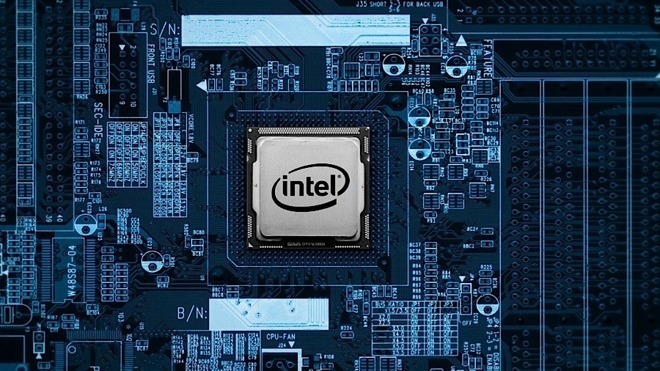Mac users have an even longer wait for new iMacs and MacBook Pro models using 'Cannon Lake' chips, after Intel confirmed the 10-nanometer processors aiming for high-end computers won't arrive any sooner than the 2019 holiday shopping period.
Advising during the processor manufacturer's second-quarter results conference call, executives confirmed chips using the 10-nanometer process are "on track" for vendors to use them in desktops and notebooks in the second half of 2019. CNBC reports interim CEO Bob Swan specified such systems would be on shelves in time for the holiday season.
Cannon Lake has been repeatedly delayed by Intel, with former CEO Brian Krzanich advising in April's results there were issues achieving suitably high yields of 10nm chips. Rather than attempt to perform high volume production and waste large amounts of wafer in the process, the company would instead work to fix the problems before trying mass production.
Intel has managed to ship a small number of 10nm Cannon Lake chips, but not in high enough quantities and with a wide-enough variety for general use by computer vendors. The Core i3-8121U is a 2.2GHz dual-core chip that rises to 3.2GHz under Turbo Boost, with a low 15-watt thermal design point (TDP) making it suitable for notebooks.
The delay on 10nm chips is not only limited to desktop and notebook computers, as it also applies to servers. Xeon processors using the manufacturing process will apparently arrive shortly after the version intended for consumer devices.
For Apple, Cannon Lake showed promise as the family of processors would include support for LPDDR4 and LPDDR4X, types of memory that are low-powered versions of DDR4. This made the chips strong candidates for use in the MacBook Pro, as it would also natively support 32GB of memory.
Until recently, the MacBook Pro lines were limited to a maximum of 16GB of RAM, restricted because of the amount supported by LPDDR3 included in Intel's chips.
For the 2018 MacBook Pro, Apple instead opted to use DDR4 memory, a more power-hungry version that necessitated extra battery capacity, but allowed Apple to move to offering 32GB of memory in the latest model. It is likely that Apple made the move due to the constant delays from Intel over enabling LPDDR4 support in its chips, and decided on an alternate method to increase the memory limit.
In the call, Intel reported record revenue of $16.96 billion for the quarter, beating analyst expectations and up 15 percent year-on-year. Net income for the quarter reached $5 billion, up 78 percent on the same period last year, with an earnings per share of $1.05.
 Malcolm Owen
Malcolm Owen







-m.jpg)






 Brian Patterson
Brian Patterson
 Charles Martin
Charles Martin



 William Gallagher
William Gallagher
 Christine McKee
Christine McKee
 Marko Zivkovic
Marko Zivkovic







40 Comments
Lots of headlines lately read, “Intel delays...”
Intel needs to get its ship in order.
Why does that look more like 2020 and what ARM desktop SOC will Apple introduce before that?
It’s time for an Aseries based iBook running either macOS or iOS using Marzipan APPS.
maybe Intel would get their act together if they saw they were endangered of losing tons of sales.
I hope atleast Apple has moved over to their own silicon based on the A series chips for their data centers as they are better for heat and power.
Intel is running up against the fact that wavelengths of light can get only so short (10 nm is pretty stinking short) and physics is going to win at attempts to get much smaller. A transistor can't get smaller than an atom. Progress on ICs is getting slower and will need some sort of breakthrough (like power reduction, using neural-type processing, memristors, light instead of electricity, etc.) before we can see performance improvement rates that we've experienced over the last 40 years.